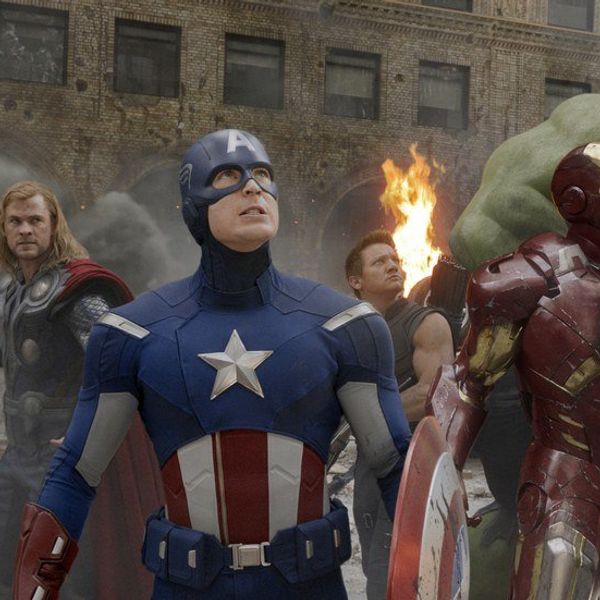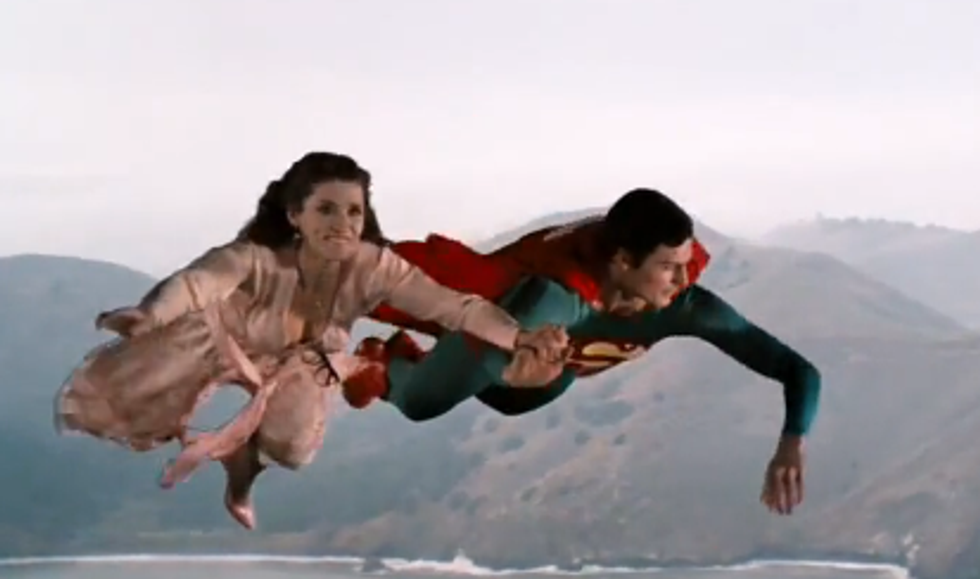The 1980s were probably the best decade for cinema. Hits such as The Empire Strikes Back, The Princess Bride, Predator, The Breakfast Club and Back to the Future were being released almost every year throughout the Reagan years, as if Hollywood had returned to a “golden age” under the presidency of an iconic actor. During this time, studios would produce their top-tier A-list films, but at the same time, smaller studios would release competing low-budget movies. One of the major “80s B Movie” companies was The Cannon Group, or as they were better known, Cannon Films. Throughout the 1980s and early 1990s, Cannon would release a large number of low-budget and low-quality movies, easily turning back the production costs and even being the first to aquire the rights to a certain character for film.
The
Cannon Group was founded in 1967 by two film students, Dennis
Friedland and Chris Dewey. Within a few years of doing English
versions of European movies, the company began working on their own
content. Beginning with Joe in
1970, Cannon quickly started to produce small scale, cheap movies
that would get picked up by the major studios to sell to cheaper
theaters, similar to the block booking practices of the 1930s-50s.
However, this would not bode well for the company overall, leading to
Friedland and Dewey having to sell off the company in 1979 to Menahem
Golan and Yoram Globus, two cousins who were making a name for
themselves in the rebirth of B-movies. Under Golan-Globus, Cannon
began to finally find their stride.
The
company became known for their “mediocre” films, making as many
as 43 a year and turning in a profit due to the low budgets and
costs. However, despite their relatively bad quality and production
values, Cannon was being seen as a major player in Hollywood at the
time. Stars such as Chuck Norris and Dolph Lundgren appeared
in Cannon productions, even launching the careers of some actors. The
breakdancing movie Breakin' was
also a Cannon production – and to show how fast they made movies,
the often-parodied sequel, Breakin' 2: Electric Boogaloo
was written, filmed, and released within the same year as the first
film. Slowly, as the early 1980s went on, Cannon was becoming a
larger studio, yet was still working on what would now be considered
“cult films,” such as Highlander.
In
1986, Cannon had cemented themselves as a “serious” film studio.
In doing so, they bought the film rights to a popular superhero,
being Marvel's Spider-Man. Hiring a group of writers who did not read
the comics, but instead only knew the premise – kid gets bit by
spider, develops spider powers – the film was originally conceived
as a violent horror film, where Peter Parker turns into a mutant
spider and goes on a killing spree as soon as he is bitten by the
radioactive spider. Marvel was leery about this script, and
co-creator Stan Lee became involved to put a stop to the script.
Cannon hired new writers who were familiar with the story, and Tom
Cruise was being thrown around as a leading actor. However, the
rights revered to Marvel in April 1990, paving the way for the 2002
blockbuster Spider-Man.
Their
downfall began in 1987 when Cannon had been tasked with making the
fourth Superman film,
due to Warner Brothers loosing too much money on Superman
III. The original script,
featuring the villains Braniac and Bizarro, was deemed too expensive
and complex, a concern carrying over from the early plans for the
Supergirl movie
(another unsuccessful project). This led to a major rewrite, wherein
Superman would, in addition to Lex Luthor and a “clone” of
himself, also take on nuclear war in a shoehorned political
commentary. The effects budget was decreased from the previous
installments in the series, causing badly-animated greenscreen
backgrounds and the same shot of Superman flying towards the camera
being used over and over in the film. The film was a critical and
commercial failure, and actor Mark Pillow, who portrayed the new
villain “Nuclear Man,” never acted again, and the Superman
series did not get another movie
until 2006. Christopher Reeve, the iconic Superman actor, disowned
the film, even up through the release, citing the cut budget and lack
of direction.
To
cash in on the then-successful “toy movie” genre that had been
primarily filled with adaptations of Hasbro toylines, such as the
1986 Transformers: The Movie,
Golan-Globus/Cannon got the rights to produce a film version of the
hit cartoon and Mattel toy He-Man and the Masters of the
Universe. Despite the fantasy
setting, Cannon elected to bring He-Man onto Earth in order to save
money and time filming. This caused the film to basically become
“teens meet He-Man,” and as with Superman
IV,
the film bombed both commercially and critically. The toyline also
suffered, coming to a halt in the early 1990s. Masters
of the Universe
essentially went the same way as Spider-Man,
but in reverse – writers who knew the show and story wrote a
script, but it was passed up to do a smaller, less accurate story
that would be cheaper to make and easier to sell on mainstream
audiences. It should also be noted that after this failure, the toy
movie genre took a major hiatus, truly returning to public view in
2007 with the release of Transformers.
Cannon's
reputation of making bad movies had caught up to them. The sequel
they had planned for Masters
of the Universe
was scrapped and rewritten to become Cyborg.
As the early 1990s film styles and genres took form, Cannon had to
try to keep up. They made less movies, worked on less projects, and
Golan left the company. He took the rights to Spider-Man and the
recently acquired Captain America rights to his own company,
releasing the 1990 bomb Captain
America as
a direct-to-video movie. As the company was not getting back their
money, and because there was little interest in their projects
following the 1987 disasters, Cannon released their final film,
Hellbound, in
1994. Two direct-to-video movies were released under the Cannon
banner in 1995 and 1996, but these had already been completed and
were just to recoup some losses.
It's
a short, condensed history of a famed “bad” film studio. Starting
in the late 60s, Cannon attempted to be brought to the forefront, and
even after becoming major players during the 1980s, they still fell
into the trap of rushing productions. Had Superman
IV: The Quest for Peace not
have been the abysmal failure that it was, or if Cannon had switched
to doing more high-scale films, similar to their competitor, Orion
Pictures, perhaps they would still be in existence today. Yet as any
Hollywood story goes, the company let their box office returns run
their system, and while there is nothing wrong with purposely making
B-movies (The Asylum does this even now), it is obvious that
eventually it will take a toll on the studio. Cannon may return in a
one-off, nostalgic cash grab. But for now, we have almost thirty
years of bad cult movie to look back on.





















